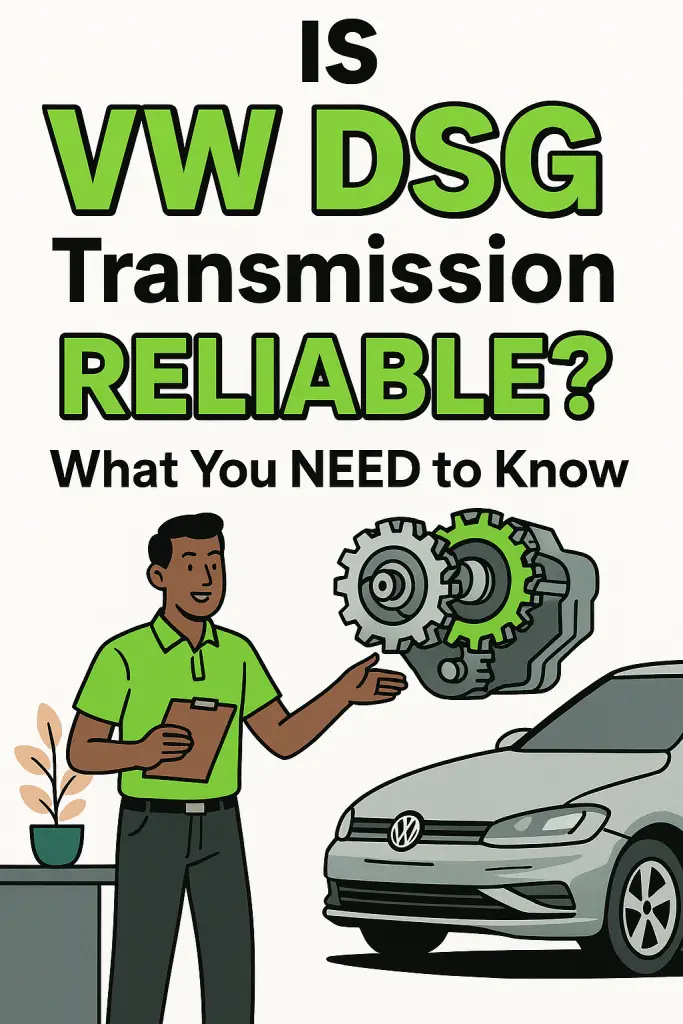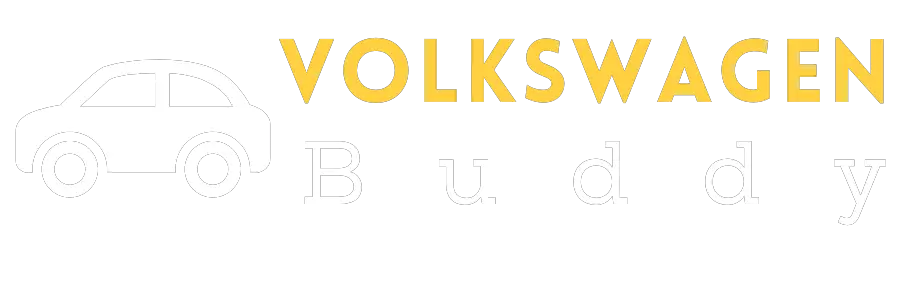Is VW DSG Transmission Reliable?
Let’s talk real-world performance, quirks, and whether you can trust it for the long haul.

The DSG Debate
So, you’re here because you’ve heard mixed things about Volkswagen’s DSG transmission, right? Maybe you’ve read glowing reviews about its lightning-fast shifts, or maybe your buddy’s horror story about a mechatronic unit failure has you second-guessing life choices.
I get it. I’ve been around VWs long enough to see both sides of the coin. I’ve driven DSG-equipped cars on long highway trips, flogged them on twisty roads, and even sat in a repair shop wondering if I should just take up cycling instead. 😅
Today, we’ll break down whether the VW DSG transmission is truly reliable, what makes it special, and what you should watch out for before you swipe your credit card.
What Exactly Is the DSG?
DSG stands for Direct-Shift Gearbox — Volkswagen’s fancy name for their dual-clutch automatic transmission. Unlike a traditional torque-converter automatic, the DSG uses two separate clutches — one for odd gears and one for even gears.
This means:
- Super-quick shifts (seriously, blink and you’ll miss them).
- Better fuel economy compared to many automatics.
- A sporty feel without having to row your own gears.
Why people love it: It combines the convenience of an automatic with the engagement of a manual.
Why people worry about it: Complexity. More parts, more electronics, more things that can potentially fail.
The Upside: Why the DSG Can Be Reliable
When maintained properly, a VW DSG can easily clock 150,000+ miles without major drama. Here’s why:
1. Proven Technology
VW has been refining DSG tech since the early 2000s. The later generations (DQ250, DQ381, and DQ500) are much more robust than early versions.
2. Predictable Maintenance Schedule
Unlike “sealed-for-life” automatics (which is marketing speak for “we’ll see you in the shop later”), DSGs have a clear service interval:
- Every 40,000 miles → Change the transmission fluid and filter.
Do that, and you’re already ahead of most of the horror stories.
3. Consistency Under Stress
If you’ve ever driven an old slushbox automatic up a mountain, you know they can get lazy. The DSG stays sharp — it doesn’t overheat easily if serviced on time.
The Downside: Why the DSG Gets a Bad Rap
Alright, let’s be real — DSGs aren’t bulletproof. Here are the common trouble spots:
1. Mechatronic Unit Failures
The mechatronic unit is the DSG’s brain, controlling gear changes. When it fails, you can get:
- Jerky shifts
- Failure to engage gears
- Warning lights galore
Replacement isn’t cheap — you’re looking at $1,500–$2,500 in many cases.
2. Clutch Wear
Yes, dual clutches can wear out, especially in city stop-and-go traffic. Symptoms include:
- Slipping under load
- Rough engagement from a stop
- Strange “shudder” feeling
Clutch pack replacement can run $1,200–$2,000 depending on the model.
3. Heat and Neglect
Skipping fluid changes is basically sending your DSG an eviction notice from your car. Heat + old fluid = premature wear.
Is It All Models, or Just Some?
Not all DSGs are created equal.
DQ200 (7-speed dry clutch)
- Found in smaller VW models.
- More issues with clutch wear and mechatronics in hot climates.
DQ250 (6-speed wet clutch)
- More robust thanks to oil-cooled clutches.
- Popular in Golf GTI, Passat, Jetta GLI.
DQ381 / DQ500
- Used in newer, higher-torque applications.
- Stronger internals, fewer complaints overall.
Real-World Tips to Make a DSG Last
If you’re going to own a DSG car, here’s your survival kit:
1. Stick to the 40k Service
Fluid and filter changes are non-negotiable. Think of it like oil changes — you wouldn’t skip those, right?
2. Don’t Creep Forever
In stop-and-go traffic, avoid inching forward on the clutch for minutes at a time. Use the brake and let the gearbox rest.
3. Warm It Up
No, you don’t have to idle for ten minutes, but go easy until the transmission fluid is up to temperature.
4. Software Updates
VW occasionally releases DSG software updates that improve shift logic and clutch engagement. Worth asking your dealer about.
My Personal Take
I’ll be honest — I’ve owned both a manual VW and a DSG VW, and the DSG won me over for daily driving. The shifts are addictive, and in “Sport” mode, it feels like the car reads your mind.
That said, I’m also the kind of person who actually follows the maintenance schedule (yes, I keep the receipts, too). A neglected DSG is a ticking time bomb. A cared-for DSG? Pretty darn reliable, IMO.
Pros and Cons at a Glance
Pros:
- Blazing-fast shifts
- Good fuel economy
- Engaging driving feel
- Well-documented maintenance
Cons:
- Expensive repairs if neglected
- Sensitive to heat and stop-start abuse
- Some early models had higher failure rates
So… Is the VW DSG Transmission Reliable?
Short answer: Yes — if you maintain it like VW intended.
Long answer: Reliability depends on:
- Which DSG version you have
- How the car is driven
- Whether the maintenance schedule is followed religiously
If you want set-it-and-forget-it convenience, a traditional automatic might suit you better. But if you’re okay with a little extra care in exchange for superior performance, the DSG is a solid choice.
Final Thoughts
Here’s the deal — the VW DSG transmission is like a high-performance athlete. Feed it right, treat it right, and it’ll perform beautifully. Ignore its needs, and it’ll quit on you faster than you can say “check engine light.”
So if you’re eyeing that Golf GTI, Passat, or Arteon with a DSG, go for it — just budget for regular services and don’t cheap out on fluid changes.
End of the day? I’d buy another DSG car in a heartbeat. But I’d also keep my mechanic’s number on speed dial… you know, just in case. 😉


![Gerald Jones Volkswagen Car Drop Off [Quick And Easy Solutions]](https://volkswagenbuddy.com/wp-content/uploads/2024/05/gerald-jones-volkswagen-car-drop-off-quick-and-easy-solutions_4544-768x531.jpg)
![Volkswagen Oil Pressure Engine Off [A Quick Fix]](https://volkswagenbuddy.com/wp-content/uploads/2024/05/volkswagen-oil-pressure-engine-off-a-quick-fix_4454-768x531.jpg)
![2001 Volkswagen Beetle Engine Identification Code Location [Explained]](https://volkswagenbuddy.com/wp-content/uploads/2024/05/2001-volkswagen-beetle-engine-identification-code-location-explained_4197-768x531.jpg)

